|
-Stathia Orwig This past week, many of our students took the state theory test which is held at SMU every fall and spring. Students prepare for this test for months before: learning new theory concepts, filling out their “Just The Facts” workbook modeled after the theory test, and taking practice tests. Students who receive a 90 percent or higher get a medal. It’s a big deal, but why take it? Why is it important? Taking this test at SMU is kinda cool for the kids; it gives them a sense of ownership, and an opportunity to be with other musicians their age outside of the studio. It’s the “social” part of taking private lessons, especially if you do not take lessons at a studio space. The social part is something that helps them stay motivated- it’s one of the things that kept me going as a young musician! I met a lot of my friends at that test: we bonded over the difficulty of the test as we got older. We studied together, complained together, and celebrated together! Since this is the standardized theory test for all students in the state of Texas, it also helps the student make sure that they know all of the concepts that typically a student their age or grade level should know. It also helps the teacher really see what the student understands, and what concepts need a little extra attention in lessons. No matter what grade they receive, the theory test is a helpful tool to evaluate theory knowledge each year. As educators, we believe that learning to play and sing music is important, but the written part of it is just as important but sometimes forgotten. From the very first lesson, we are teaching children how to draw notes and rests and clap rhythms. Then we begin building on that knowledge, and before you know it we are working on key signatures and eventually primary triads! It goes fast! These are all important concepts in learning music. In the early years, it’s great to have on a resume and to show how well rounded your child is! For the older kids, even for those not completely devoted to making a career in music, following through with music theory can have its benefits, like becoming more of an independent learner (and testing out of music in college, ha!
0 Comments
-Meredith Manley
I came across a wonderful post on Facebook from another piano teacher, Jennifer Shambaugh, which inspired the topic for the blog this week. I always knew parent involvement was critical for progress, but she presented some concrete ways of how parents can help their child succeed at home: “1. Be in the know: If you do not sit in the lesson, it’s good to sit down with your child after every lesson and look at their assignment book. Be sure you know what they are supposed to be practicing and what performance pieces they are to be preparing. This will help you assist your child with practice even if you don’t play an instrument. 2. Set a practice routine: Set a specific time for each day of practice; keep it at the same time every day they practice. Be sure your child is fulfilling the required days and times of practice, and begin practice no later than the day after their lesson to help remember what the teacher taught. It is vital that the parent sets the schedule and makes sure it is kept. 3. Let your child do it: Never allow anyone or yourself to do your child’s written homework. If your child needs help, assist as necessary but don’t do the work for them. If you do it for them, they will not learn the concepts needed to learn to play the piano. If you feel it’s best the teacher help your child, then leave the work unfinished until their next lesson. 4. Don’t quit: Don’t allow your child to quit lessons just because it gets difficult; there will be times on and off throughout music study where it becomes difficult for everyone. This is the time where you are most needed! Be there for your child, encourage them, have confidence in them, and give them positive feedback to get through it. 5. Share their music: Allow your child to play for friends, family, or in recitals and competitions. Not only will it build your child’s self-esteem, it will also give your child a sense of accomplishment. 6. Have fun: Allow and encourage your child to play their instrument outside of their practice time to explore or play things that are not part of their lesson; it keeps music fresh for them. Ask your child to play their music for you, and be sure to sit and listen then applaud or praise them for their accomplishments.” It was also interesting that at the last Dallas Music Teachers Association meeting I attended, the topic was “Making the Most of Every Minute: A Practical Guide to Student Practice”, presented by Dr. Chris Fisher. He showed us some interesting statistics: in regards to piano work, one 30 min lesson per week is 0.3% of the child’s schedule, so that means 99.7% of their time is at home without the teacher. He really stressed that after the lesson, the parent becomes the “home teacher”, and that the piano torch is passed to them once the lesson is over. Parent involvement really does make or break a student as far as how much they progress. Please know that your teacher is there for you if you have questions, need help setting a practice schedule, or are struggling with something. We are more than happy to help and only want to see you or your child succeed in lessons! Music SO Simple Honor Roll is a wonderful way of motivating certain students in the spring who go above and beyond in their lessons. The fall semester seems to be sort of the warm up for the spring, and winter break gives our students time to rest in preparation to come back and hit the ground running. Honor Roll lasts 14 weeks, and students earn a certain number of points each week based on their practice, theory, having their materials, adding new pieces, and participating in extra DMTA/TMTA opportunities. Honor Roll requires the student, parent, and teacher to all work together to reach the finish line. There are a couple of big events in the spring that require Honor Roll students to step up their practice. DMTA Achievement Auditions is an event in April where students learn and memorize 3 different genres of pieces (one baroque, one sonata/sonatina, and one of their choice). Playing three different pieces by memory for a judge is no easy task! We usually begin learning these pieces by mid January. May Recital is usually the last event of the spring, and students are expected to play one or two pieces from memory. This recital symbolizes all that each student has learned over the entire school year, and it’s a great moment of achievement for them to see how far they’ve progressed. The TMTA state theory test is in January and most of our students begin preparing for it in the fall. One of the areas of Honor Roll is completing theory homework, which helps our students keep up with their theory work even after the state theory test is over. Having materials ready at the lesson seems obvious, but sometimes students forget to bring their books or they can’t find their books when it’s lesson time. Having your books ready not only maximizes productivity in your lesson, but it’s also a great life skill- students learn to be organized and prepared when it’s time to work. Many of our students began the 40 piece challenge at the beginning of the school year in September, so Honor Roll is a great way to keep them motivated to finish the challenge. The 40 piece challenge and Honor Roll go hand in hand as they both require focus, commitment, and achievement. To read more about the 40 piece challenge, check out our blog. Honor Roll is a great way to award those special students who work extra hard in their music study. Students who do participate and fulfill the requirements for Honor Roll are recognized at the May Recital and are given awards. To see the complete Honor Roll 2017 Requirements, click here. Grand Prize for 2017:
Mozart Bust |
Archives
January 2024
Categories
All
|
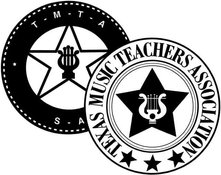
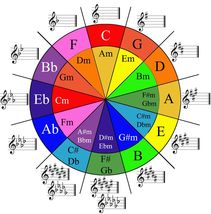
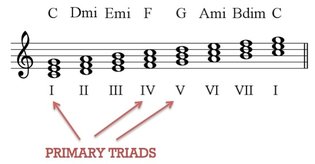
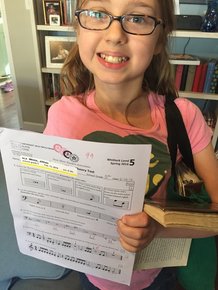
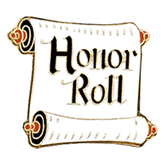

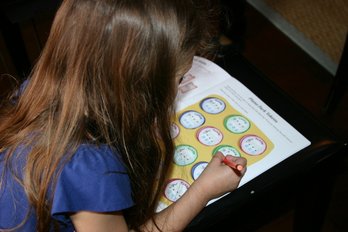
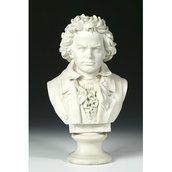
 RSS Feed
RSS Feed